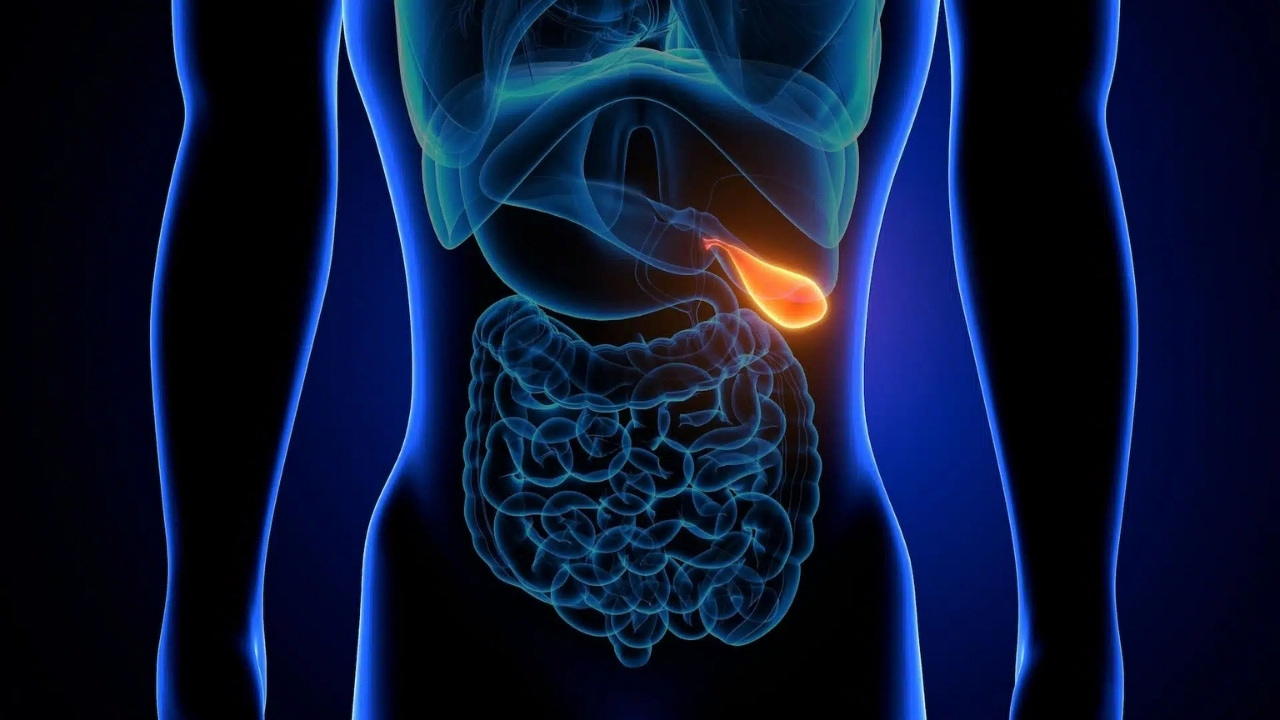
Ever wondered what the gallbladder does? The gallbladder stores bile, a digestive fluid produced by the liver. This small organ, tucked under the liver, plays a crucial role in digestion. When you eat fatty foods, the gallbladder releases bile into the small intestine to help break down fats. Despite its importance, many people live without it after surgery due to gallstones or other issues. Did you know the gallbladder can hold about 50 milliliters of bile? That's roughly the size of a shot glass! Keep reading to uncover more fascinating facts about this tiny but mighty organ.
What is the Gallbladder?
The gallbladder is a small organ tucked beneath the liver. It plays a crucial role in digestion by storing bile, a fluid produced by the liver. Bile helps break down fats in the food we eat.
- The gallbladder is about 3 to 4 inches long and shaped like a pear.
- Bile stored in the gallbladder is released into the small intestine through the bile ducts.
- The liver produces about 800 to 1,000 milliliters of bile each day.
- Bile contains bile salts, cholesterol, and waste products like bilirubin.
- The gallbladder can hold about 50 milliliters of bile.
Functions of the Gallbladder
Understanding the functions of the gallbladder helps us appreciate its importance in the digestive system. Here are some key roles it plays:
- The gallbladder stores bile produced by the liver until it is needed for digestion.
- It concentrates bile by removing water and electrolytes, making it more effective in breaking down fats.
- When you eat fatty foods, the gallbladder contracts to release bile into the small intestine.
- Bile helps emulsify fats, making them easier to digest and absorb.
- The gallbladder also helps in the absorption of fat-soluble vitamins like A, D, E, and K.
Common Gallbladder Problems
The gallbladder, like any other organ, can face issues that affect its function. Here are some common problems:
- Gallstones are hardened deposits of bile that can form in the gallbladder.
- Gallstones can be as small as a grain of sand or as large as a golf ball.
- Cholecystitis is the inflammation of the gallbladder, often caused by gallstones blocking the bile ducts.
- Symptoms of gallbladder problems include pain in the upper right abdomen, nausea, vomiting, and fever.
- Gallbladder polyps are growths that protrude from the lining of the gallbladder, usually benign but sometimes cancerous.
Gallbladder Removal Surgery
Sometimes, gallbladder issues require surgical intervention. Here’s what you need to know about gallbladder removal:
- Cholecystectomy is the surgical removal of the gallbladder.
- It can be performed using traditional open surgery or minimally invasive laparoscopic surgery.
- Laparoscopic surgery involves smaller incisions, less pain, and quicker recovery.
- Most people can live a normal life without a gallbladder, as the liver still produces bile.
- After gallbladder removal, bile flows directly from the liver to the small intestine.
Interesting Facts About the Gallbladder
The gallbladder has some fascinating aspects that many people might not know. Here are a few intriguing facts:
- The word "gall" in gallbladder comes from an old term for bile.
- Some animals, like horses and rats, do not have a gallbladder.
- The gallbladder can sometimes be affected by parasites, such as liver flukes.
- Gallbladder issues are more common in women than men.
- Rapid weight loss can increase the risk of developing gallstones.
- A diet high in fiber and low in fat can help maintain gallbladder health.
Final Thoughts on Gallbladder Facts
Understanding the gallbladder and its functions can help you appreciate this small but mighty organ. From its role in digesting fats to the common issues like gallstones, knowing these facts can make a difference in your health. Remember, a healthy diet and regular check-ups can keep your gallbladder in good shape. If you ever experience symptoms like severe abdominal pain or nausea, don't ignore them. Early detection of gallbladder problems can prevent more serious complications. Keep these facts in mind and share them with others. Knowledge is power, especially when it comes to your health. Stay informed, stay healthy, and take care of your gallbladder.
Was this page helpful?
Our commitment to delivering trustworthy and engaging content is at the heart of what we do. Each fact on our site is contributed by real users like you, bringing a wealth of diverse insights and information. To ensure the highest standards of accuracy and reliability, our dedicated editors meticulously review each submission. This process guarantees that the facts we share are not only fascinating but also credible. Trust in our commitment to quality and authenticity as you explore and learn with us.
